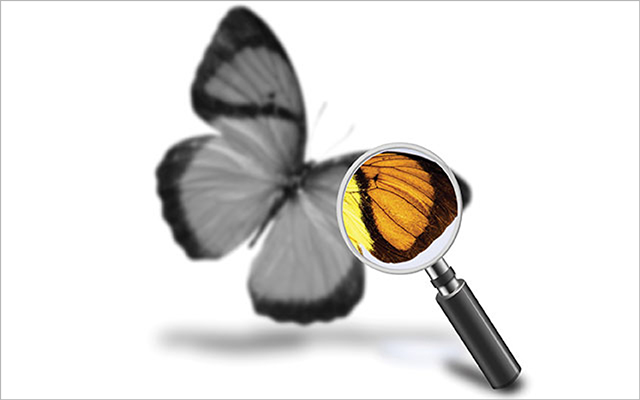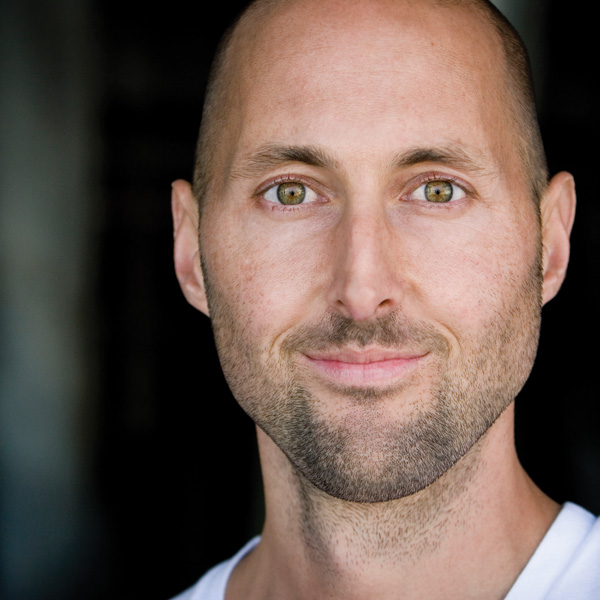Daniel J. Siegel, MD, clinical professor of psychiatry at UCLA School of Medicine, is one of the world’s leading neurobiologists and psychotherapists. He founded the field of interpersonal neurobiology. He’s brilliant, and he delivers his wisdom in a captivating, poetic style.
Drawing on case studies, Siegel combines cutting-edge Western neuroscience research with insights from psychotherapy and Eastern meditation practices to show how we can observe and shape our own minds — an ability he refers to as “mindsight.”
Let’s explore some of my favorite big ideas from his book Mindsight: The New Science of Personal Transformation, starting with a deeper look at what mindsight is.
The Seventh Sense
We’re all familiar with the five primary senses: sight, smell, sound, taste, and touch. There’s also the sixth sense — our intuition, or the gut instincts that you feel with your body. Siegel argues that mindsight is our seventh sense. It’s the ability to pay attention to how our minds are working. Not only can we observe what’s going on in our minds, but we can also shift it.
“Mindsight is a kind of focused attention that allows us to see the internal workings of our own minds,” Siegel writes. “It helps us to be aware of our mental processes without being swept away by them, enables us to get ourselves off the autopilot of ingrained behaviors and habitual responses, and moves us beyond the reactive emotional loops we all have a tendency to get trapped in. It lets us ‘name and tame’ the emotions we are experiencing, rather than being overwhelmed by them.”
Think of mindsight as a lens that will help you focus on your mind’s workings with more clarity than you’ve ever experienced. That clarity will give you more control over your life.
“[Mindsight] allows us to reshape and redirect our inner experiences so that we have more freedom of choice in our everyday actions, more power to create the future, to become the author of our own story,” Siegel explains. “Another way to put it is that mindsight is the basic skill that underlies everything we mean when we speak of having social and emotional intelligence.”
Healthy Principles
Siegel’s mindset theory is based on three fundamental principles. First, mindsight is not an inherent trait; it’s something we can develop by focusing our attention in specific ways through practices like meditation.
Second, when we cultivate mindsight, we literally change the structure of our brains. This is called neuroplasticity. With regular exercise, a healthy diet, and ample sleep — brain hygiene basics — we build the foundation for neuroplasticity, Siegel explains.
Finally, mindsight helps the brain achieve and maintain integration. “Integration enables us to be flexible and free; the lack of such connections promotes a life that is either rigid or chaotic, stuck and dull on the one hand, or explosive and unpredictable on the other,” Siegel writes.
“With the connecting freedom of integration comes a sense of vitality and the ease of well-being. Without integration, we can become imprisoned in behavioral ruts — anxiety and depression, greed, obsession, and addiction.”
These three fundamental principles are the essence of Siegel’s book. Let’s take a closer look at what integration is all about.
River of Integration
Like all rivers, Siegel’s river of integration has two banks: On one side lies rigidity and on the other lies chaos. Healthy people need both structure and spontaneity; these people tend to flow between the banks. Unhealthy people get stuck on one side or the other.
When we are cruising between those banks, we have what Siegel calls “FACES” flow. We are flexible, adaptable, coherent, energized, and stable.
“We can say that any healthy complex system has a FACES flow,” he explains. “When the self-organizational movement of the system is maximizing complexity, it attains a harmonious flow that is at once flexible, adaptive, coherent, energized, and stable.”
As we cultivate our mindsight, we enhance our flexibility, and focus on our awareness — consciously choosing to explore different areas of our experience rather than getting swept up or stuck in them.
SNAG It!
Now it’s time to “SNAG,” or stimulate neuronal activation growth.
When we “snag” our minds, we create new neurons and synapses through processes known as neurogenesis and synaptogenesis. We’re literally rewiring our brains. The point of this rewiring is to achieve the natural human states of health and happiness.
Achieving integration is an ongoing process. Like any change you’re trying to make, it may seem difficult at the beginning, but its benefits make it a worthy pursuit. Here’s how Siegel describes the process:
“It’s like the old physics idea of pushing a ball up a hill to get it rolling down the other side. It takes considerable effort and deliberate attention to move beyond the initial ingrained, nonintegrated state — to push the ball up the hill. This is the intentional work of change. But ultimately the emerging mind takes its natural course toward integration, and the ball flows effortlessly down into the valley of coherence.”
Siegel’s methods don’t offer any quick fixes, but there’s a ton of hope in his work. By taking steps to reflect on our thoughts rather than react to or withdraw from them, we can boost our well-being.
So here’s to the patient, persistent effort required to push our consciousness up the hill so we can watch it roll down into the valley of coherence.
Download a PDF summary of Mindsight.
Watch as Summary of Mindsight: The New Science of Personal Transformation
Optimal Living 101
Explore more profound insights and practical wisdom from leading thinkers by diving into our Optimal Living 101 series.
More About the Author of Mindsight
Daniel J. Siegel, MD, is clinical -professor of psychiatry at the UCLA School of Medicine, founding codirector of the UCLA Mindful Awareness Research Center, and executive director of the Mindsight Institute. A graduate of Harvard Medical School, he is the coauthor of Parenting from the Inside Out and the author of the internationally acclaimed professional texts The Mindful Brain and The Developing Mind. Siegel keynotes conferences and presents workshops around the world. He lives in Los Angeles with his wife and two children. Learn more at www.DrDanSiegel.com.





This Post Has 0 Comments